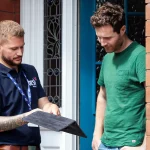UK ISP Zen Internet Shuns Proposal for Voluntary P2P Piracy Warning Letters
The Regulatory Manager for UK ISP Zen Internet, Gary Hough, has criticised the Government’s efforts to introduce a new Voluntary Copyright Alert Programme (VCAP) of Internet piracy warning letters. Zen noted the distinct lack of engagement with the wider ISP industry and said that they currently had no intention of signing up to such a scheme.
Plans for a new voluntary system have been debated many times before over the past 6-7 years, although last year’s realisation that a controversial legislative solution through the much delayed 2010 Digital Economy Act (DEAct) wouldn’t be introduced anytime soon appears to be the catalyst for the latest attempt at a voluntary solution (here and here).
Advertisement
A recently leaked proposal (full details) revealed that Rights Holders would pay 75% of the costs for setting up and running the system alongside Sky Broadband, Virgin Media, TalkTalk and BT. As before the rights holders would gather details about unlawful file sharers on public P2P networks and send them on to ISPs, which would then issue “educational” warning letters to the related customers.
But crucially the big ISPs would only be able to send a maximum of 4 letters to any given subscriber, which would use language that “escalates in severity” but does not contain threats, and after that no further action will be taken.
However smaller ISPs, including those represented by the influential Internet Service Providers Association UK (ISPA), are frustrated by the closed-door negotiations and lack of engagement with the wider industry. As a result some, such as Andrews and Arnold (AAISP), have since said that they “have no intention of sending such letters” and now Zen Internet has taken a similar stance.
Gary Hough, Zen’s Regulatory Manager, said:
“From our perspective having not been one of those ISP’s that has been involved in these meetings nor indeed agreed to sign up to use such a scheme, it is fair to say this is not something we would consider lightly, nor do we have any intention to sign up to as we believe the current process for rights holders to seek a court order once an alleged infringement has allegedly taken place is sufficient and a well worked, fair process for doing just that.
Given the year on year increase and record profits that online digital media companies and rights holders are benefitting from today. Would it not be better for the music and film industry to build on that success and provide even more of what consumers want, which is sensible, attractive, low cost models that provide the content they want to purchase.
If commercial models are created to meet that demand then piracy will almost certainly see a reduction although it is unlikely to ever truly stop the most persistent of illegal downloaders. By giving customers choice and sensibly priced content they will almost certainly then be more likely to want to purchase content legitimately.
Zen’s position has always been to welcome and support the principles of copyright protection, but this needs to be robust, sensible and proportionate and we certainly wouldn’t be comfortable in supporting a system that simply gathers IP addresses from peer to peer websites in order to then allege the internet accounts concerned might be guilty of downloading illegally, content.”
The system, which appears to be based on the idea that most online copyright infringers will stop their activity if given a warning (e.g. a home where children are committing the offence and parents aren’t aware), is initially expected to run for 3 years pending regular reviews. But if successful then Rights Holders have already indicated they would seek the introduction of a tougher system with sanctions attached (disconnection?), which would bring it more into line with the DEAct.
Advertisement
As it stands today there’s still no agreement and two of the four ISPs involved have so far refused to sign-up, while the remaining two aren’t likely to agree unless everybody gets on-board. Meanwhile the Government remains confident that VCAP can be introduced before the end of 2014.
Mark is a professional technology writer, IT consultant and computer engineer from Dorset (England), he also founded ISPreview in 1999 and enjoys analysing the latest telecoms and broadband developments. Find me on X (Twitter), Mastodon, Facebook, BlueSky, Threads.net and Linkedin.
« Hundreds of New Windsor Park Homes Left to Wait Months for Broadband
ISP PlusNet Slashes UK Business Broadband and Phone Prices »

















































Comments are closed